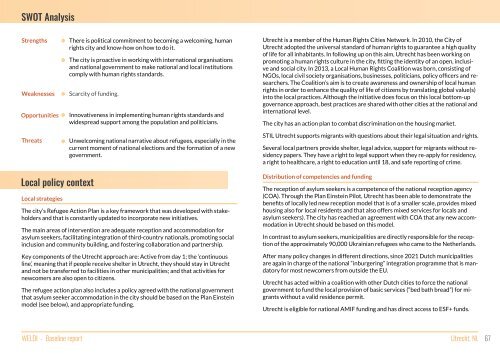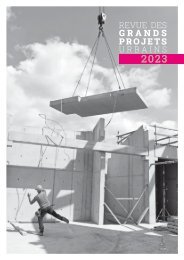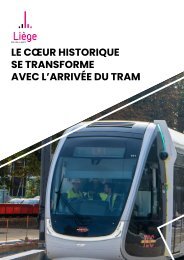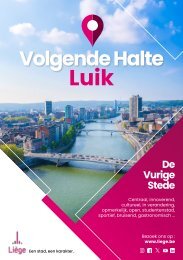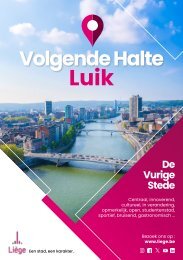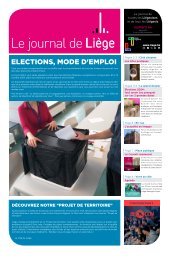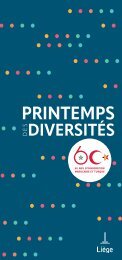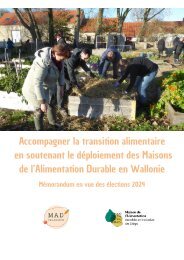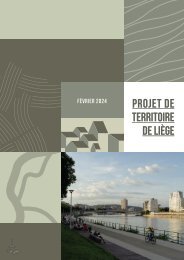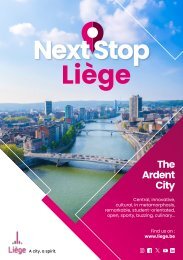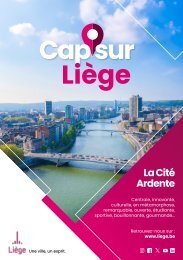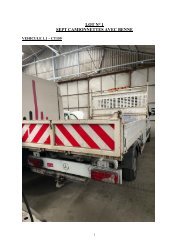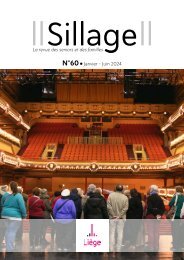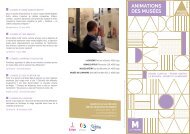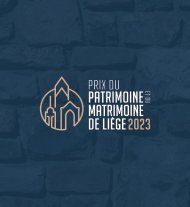Create successful ePaper yourself
Turn your PDF publications into a flip-book with our unique Google optimized e-Paper software.
SWOT Analysis<br />
Strengths<br />
Weaknesses<br />
Opportunities<br />
Threats<br />
There is political commitment to becoming a welcoming, human<br />
rights city and know-how on how to do it.<br />
The city is proactive in working with international organisations<br />
and national government to make national and local institutions<br />
comply with human rights standards.<br />
Scarcity of funding.<br />
Innovativeness in implementing human rights standards and<br />
widespread support among the population and politicians.<br />
Unwelcoming national narrative about refugees, especially in the<br />
current moment of national elections and the formation of a new<br />
government.<br />
Utrecht is a member of the Human Rights Cities Network. In 2010, the City of<br />
Utrecht adopted the universal standard of human rights to guarantee a high quality<br />
of life for all inhabitants. In following up on this aim, Utrecht has been working on<br />
promoting a human rights culture in the city, fitting the identity of an open, inclusive<br />
and social city. In 2013, a Local Human Rights Coalition was born, consisting of<br />
NGOs, local civil society organisations, businesses, politicians, policy officers and researchers.<br />
The Coalition’s aim is to create awareness and ownership of local human<br />
rights in order to enhance the quality of life of citizens by translating global value(s)<br />
into the local practices. Although the initiative does focus on this local bottom-up<br />
governance approach, best practices are shared with other cities at the national and<br />
international level.<br />
The city has an action plan to combat discrimination on the housing market.<br />
STIL Utrecht supports migrants with questions about their legal situation and rights.<br />
Several local partners provide shelter, legal advice, support for migrants without residency<br />
papers. They have a right to legal support when they re-apply for residency,<br />
a right to healthcare, a right to education until 18, and safe <strong>report</strong>ing of crime.<br />
Local policy context<br />
Local strategies<br />
The city’s Refugee Action Plan is a key framework that was developed with stakeholders<br />
and that is constantly updated to incorporate new initiatives.<br />
The main areas of intervention are adequate reception and accommodation for<br />
asylum seekers, facilitating integration of third-country nationals, promoting social<br />
inclusion and community building, and fostering collaboration and partnership.<br />
Key components of the Utrecht approach are: Active from day 1; the ‘continuous<br />
line’, meaning that if people receive shelter in Utrecht, they should stay in Utrecht<br />
and not be transferred to facilities in other municipalities; and that activities for<br />
newcomers are also open to citizens.<br />
The refugee action plan also includes a policy agreed with the national government<br />
that asylum seeker accommodation in the city should be based on the Plan Einstein<br />
model (see below), and appropriate funding.<br />
Distribution of competencies and funding<br />
The reception of asylum seekers is a competence of the national reception agency<br />
(COA). Through the Plan Einstein Pilot, Utrecht has been able to demonstrate the<br />
benefits of locally led new reception model that is of a smaller scale, provides mixed<br />
housing also for local residents and that also offers mixed services for locals and<br />
asylum seekers). The city has reached an agreement with COA that any new accommodation<br />
in Utrecht should be based on this model.<br />
In contrast to asylum seekers, municipalities are directly responsible for the reception<br />
of the approximately 90,000 Ukrainian refugees who came to the Netherlands.<br />
After many policy changes in different directions, since 2021 Dutch municipalities<br />
are again in charge of the national “inburgering” integration programme that is mandatory<br />
for most newcomers from outside the EU.<br />
Utrecht has acted within a coalition with other Dutch cities to force the national<br />
government to fund the local provision of basic services (“bed bath bread”) for migrants<br />
without a valid residence permit.<br />
Utrecht is eligible for national AMIF funding and has direct access to ESF+ funds.<br />
<strong>WELDI</strong> - Baseline <strong>report</strong><br />
Utrecht, NL<br />
67


